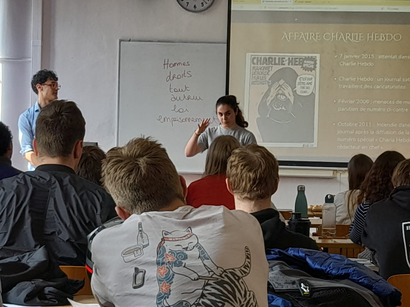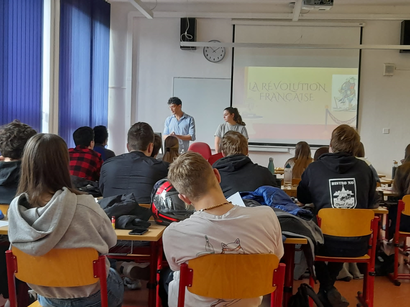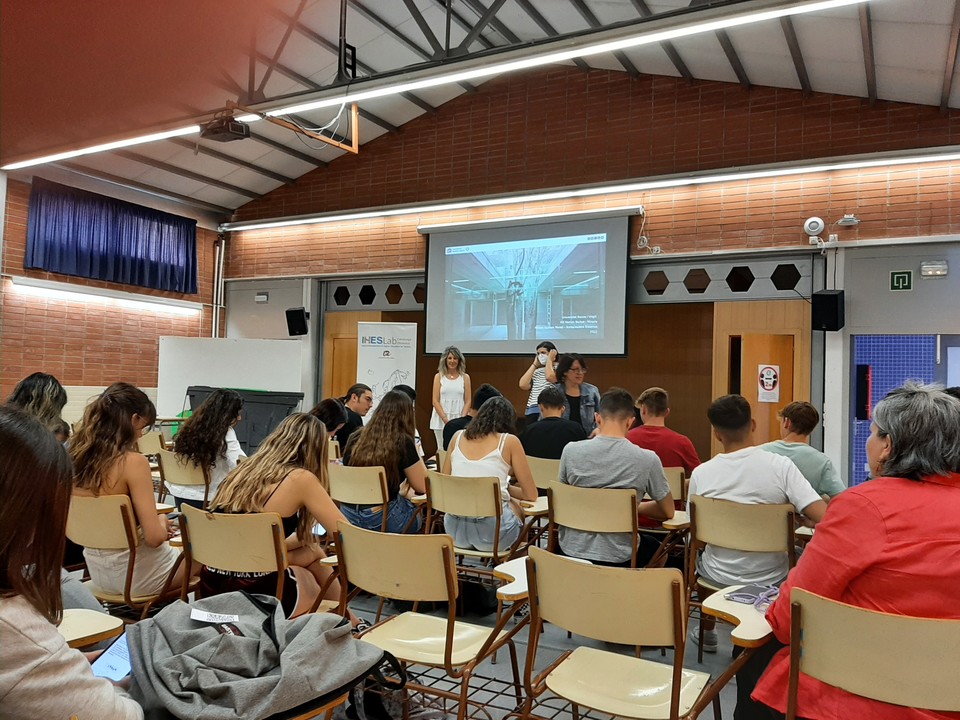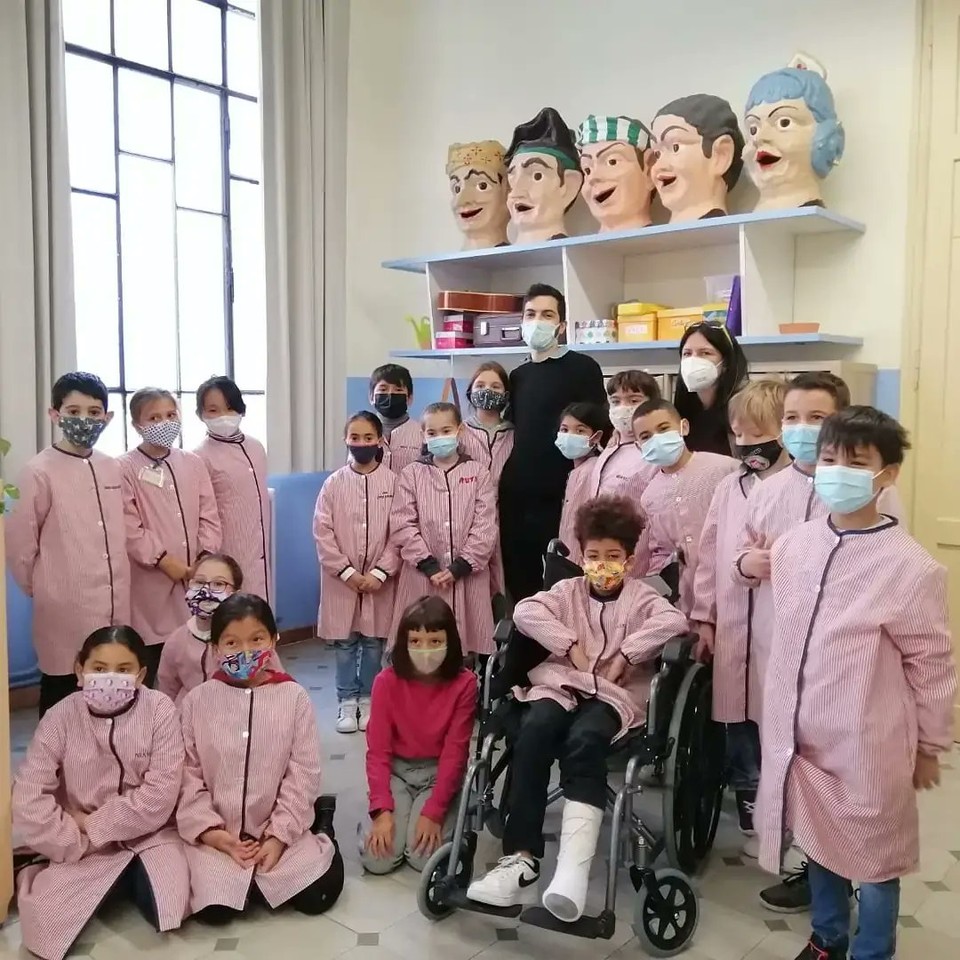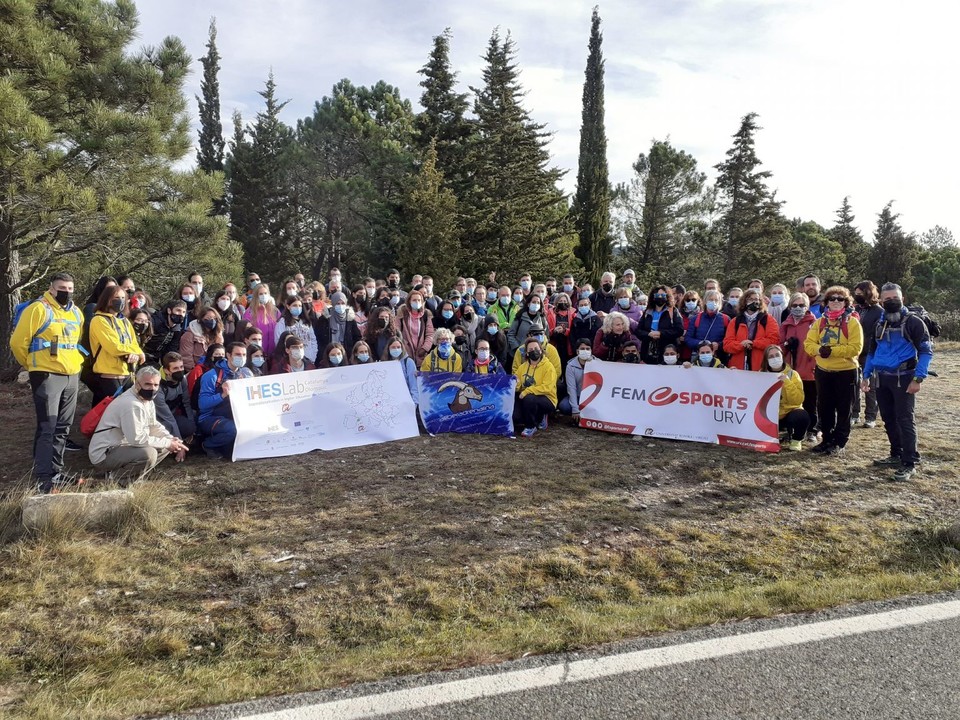IHES Labs
Read our IHES Labs Report here.
Olomouc IHES Laboratory
Our main goal is to utilise internationalisation in higher education for the benefits of wider society. Olomouc IHES Lab is new but the idea of building strong ties with the wider society and training law students in the spirit of social justice and public service has been an integral part of the Faculty of Law´s mission at Palacký University Olomouc since its renewal in 1991. Our Faculty of Law has an extensive system of legal clinics, where students, under the thorough supervision by academic supervisors, provide pro bono legal support and advice to socially and economically disadvantaged individuals in different areas of law. Legal clinics aid under-privileged areas in society with the goals of improving people’s lives, securing justice, and advancing civil, political, economic, social and cultural rights. The Faculty is also strong in internationalisation – through the exchange of students, double degree programmes and programmes at Master´s and PhD levels conducted in English, through regular courses taught by experts from abroad, scientific cooperation and much more. The Olomouc IHES Laboratory attempts to bring the above mentioned strong areas together to improve legal education, but also to generate a broader societal impact and to encourage public interests.
Olomouc IHES Lab Activities
Within the project, we carry out the following activities:
Street Law for French Students
This activity is designed specifically for French university students, who arrive at Palacký University Olomouc via Erasmus+ Programme. The specifically designed course offers an introduction into basic pedagogical aspects (how to teach) and an experiential part where students go to local secondary schools, especially to bilingual secondary schools with French as second language, to teach in French topics such as the legal system and politics in France.
EU into Schools
EU into Schools involves university students in teaching at secondary schools while focusing on various aspects of the European Union. In the wider societal context, this activity is meant to diffuse internationalisation into secondary education, to raise major awareness related to the interrelationship between the Czech Republic and the EU, and to increase the sensitivity to disinformation. The activity is carried out by our Department of Political Science and Social Sciences.
Classes for Senior Citizens: Talks on Global Issues
Classes for Senior Citizens: Talks on Global Issues organise debates on current social and international topics such as the Czech Republic in the EU, democracy and rule of law, multiculturalism, under the Third Age University (U3V). The activity aims to support the integration of the elderly people into higher education, the decrease of disinformation concerning international topics among senior citizens, and to improve aspects of internationalisation in the area of the mentioned U3V. The whole activity is conducted by our Department of Political Science and Social Sciences.
Global Witness of Climate Change
Global Witnesses of Climate Change arrange talks on sustainable development, including salient environmental issues and energy security. These talks are provided to students at secondary schools by Palacký University Olomouc academics. The main goal is to spread the concept of sustainable development and its linkage to human rights, equality, and justice, and to raise students’ environmental awareness. In a broader scale, the project aims to support the development of critical thinking related to global issues and changes. This activity is carried out by our Department of Political Science and Social Sciences.
Ukrainian Refugees Law Clinic
After the Russian aggression against Ukraine, the Czech Republic struggled with masses of incoming Ukrainian refugees. As one of the activities designed to help the Czech Republic to face the challenge, the IHES team together with the Department of Clinical Legal Education and Professional Skills Development decided to establish a platform where the refugees can seek legal help (Ukrainians are not aware of the Czech legal system). The refugee counselling centre is to operate as an email address where Ukrainians can write their problems and our master students assist them.
Sports Activities - Bowling Competition
This activity aims at society at large, i.e. bringing academics and students, from the Czech Republic or abroad, together with the local population. Sport events are a good opportunity to achieve this effort, hence in cooperation with the ESN, the Olomouc IHES Laboratory organises a bowling competition, where the participation of foreign academics and students is encouraged.
Who we are and who is involved
Our core team consists of the following members:
- Dr. Martin Faix – Manager of the Olomouc IHES Lab, Vice-Dean for International Affairs, Senior Lecturer in Public International Law
- Dr. Lucia Madleňáková – Head of the Department of Clinical Legal Education and Professional Skills Development, the supervisor of the above activities No. 1 and 5.
- Dr.Petra Měštánková – Head of the Department of Political and Social Sciences, the supervisor of the above activities No. 2, 3 and 4.
The other members of the team are also academics and students working and studying at the Faculty of Law, and Palacký University Olomouc in general. Some of the activities are carried out in cooperation with associated partners, mainly with the ESN.
Catalonia IHES Laboratory
The Catalonia IHES Lab has been established at the Universitat Rovira i Virgili (URV) with the aim of sharing the university's knowledge and internationalization resources with society at large. The purpose of the laboratory is to understand and learn how to transfer the university's international activities to the community, involving and strengthening the existing links with society.
Catalonia IHES Lab is a social laboratory that experiments with and monitors a set of 8 activities promoted by the university. All of them have been selected because they were considered actions capable of internationalizing the region and their results would reveal new social needs and valuable information about how the internationalization of higher education can have a positive impact on the territory and help improve and achieve the SDGs by 2030.
To carry out the laboratory activities, collaboration has been promoted among different actors, such as the university, civil society organizations, the public sector, companies, academics, and citizens. Thanks to this, new spaces for dialogue have been created in which joint solutions have been sought, and the diverse capacities and knowledge of the participants have been leveraged to generate more comprehensive solutions.
One of the most interesting challenges of the laboratory has been to promote collaboration and co-creation among three university services at URV: the Office of Social Engagement, the Student Office, and the International Center. This intra-university cooperation, joined by the academia in several interventions, began with a training course organized by the university itself, where the international factor in activities where the university interacts with society was identified and studied for improvement. As a result of this training, 8 university activities were proposed that have nourished the laboratory and have been the subject of study; 2 are newly created, and the other 6 were existing activities in which work has been done to improve their international or social component.
Thus, the Catalonia IHES Lab has been created and developed through the analysis of the behaviour of these 8 activities, which during the academic year 2022-2023 facilitated a collection of data that allowed us to evaluate the effectiveness and impact of the proposed interventions before implementing them on a larger scale.
Catalonia IHES Lab Activities
-
The Erasmus Experience in secondary schools (IES): ‘I confess: I have been on an Erasmus experience (and I would do it again)’.
University students give presentations to secondary-school pupils about their Erasmus experience and other university-student mobility programmes. They visit classrooms in high schools, particularly where they themselves used to study. It is one hour per session and the project took place during the academic year 2021-2022. It is organised by the OFES-URV Student Office, section of promotion, students and admission and the I-Center section for Mobility out /mentors. The project team handed out participation certificates for the Erasmus students.
Bringing the Erasmus experience to secondary schools via their own alumni (now URV students who have been on Erasmus). and encourage them to have a future international experience.
-
The SMiLE Programme - Student Mobility & Learning English
SMiLE is a joint coordination programme between the URV and the Department of Education in Tarragona. The programme is specially designed for incoming international students at the URV and Erasmus+ Internships. The aim of the programme is to promote the learning of foreign languages (mainly English, French and German but also the international students and trainees' mother tongue and culture). We offer work placement exercises especially to those who might wish to specialise in Teaching English as a Foreign Language (TEFL). Those working as language assistants will obtain 6 ECTS credits after completing 40 hours of work placement.
International incoming students on English language oral teaching practice in schools of the region.
Find more on YouTube and project website. -
Global Witnesses of Climate Change
From the Office of Social Commitment - Environment and Sustainability Area of the URV, it is proposed to incoming international mobility students to act as international witnesses of the reality of climate change, making presentations through posters and/or videos. These testimonies are based on the students’ information in collaboration with their older relatives who, sharing their experiences, give us real first-hand information.
The plan was that publishing real climate breakdowns explained by the people directly affected by them, it would build a bridge between communities. In fact, the activity could give visibility about how climate change is impacting all the territories and developing a global-nearness environmental consciousness.
Find more at the following website. -
SustainComp Project
This IHES project focuses on the collection of obsolete computers and laptops that are then restored, equipped with educational software and delivered where needed.
By restoring the computers and equipping them with educational software, they can be turned into a powerful tool for breaking down the educational digital divide the world over. The project is put into practice merely with the goodwill of people who are prepared to spend their time on collecting, restoring and transporting computers, and with unused resources such as laptops or luggage space for travellers. Therefore, there is no need for economic investment to achieve the objective. Likewise, the project does not generate any emissions of contaminants because it takes advantage of journeys scheduled for other functions.
The URV SustainComp project is a hub of Labdoo network. Find more at project website (in Catalan only).
-
Sports URV-Leisure and Healthy Physical Activities
This project includes two separate activities: Canoeing and University Autumn Excursion (hiking), both aimed at both the university community and the wider public. A specialised company is hired to lead each of these activities.
Canoeing takes place in the Ebro River at the time of the year when de river flow is optimal, which is usually during the first weeks of October.
As for the University Autumn Excursion, it is planned to have a low level of difficulty to encourage everyone to participate and it takes place in some of the most beautiful surroundings of the university Campus. It takes place in November.
-
International lectures at the Classes for Senior Citizens
University seniors’ is an implemented program at the URV and includes presentations and talks on different aspects of multi-culturalism, led by our international community, to complement the lectures already scheduled throughout the academic year in several locations throughout the region.
This project previewed two separate activities:
The project is run by the Office of Social Engagement-Classes for Senior Citizens. The activities took place throughout the year 2022 with a talk lasting approx. 1 hour. The activities take place at municipal premises for the elderly in 23 locations.
- Talks on international topics (other cultures, Brexit, etc.)
- Talks by outgoing Erasmus students to share their international mobility experience.
-
International Activities at the Locations of the Extensive Campus Project
The URV's Extensive Campus project aims to listen to and to understand the needs of each territory and respond to them by approaching university knowledge to society and thus contributing to the progress of the counties of southern Catalonia. To this end, the project has built a network of municipalities-nodes, in close collaboration with local entities which are familiar with the cultural, social and economic reality of the area. This project has the collaboration of the town councils, which make municipal spaces available to the University, and with the financial support of the Tarragona Provincial Council. During the IHES project life, the network consists of fifteen locations.
- The project contributed to the IHES Lab Catalunya with the following activities: Participation in the Big-Draw International Festival from de location of Amposta. Find more in this video on YouTube.
- Book clubs about foreign writers at the location of Mora d’Ebre
- Talk, listen, practice English/Parle, écoute, practique le Français at the location of Santa Coloma de Queralt
Who we are and who is involved
Our core team consists of the following members:
- Marina Casals – Director of International Relations at URV and the Catalonia IHES Lab.
- Josepa Garreta – Technical staff Social Engagement Office (OCS) at Catalonia IHES Lab. Co-coordinator of the at Catalonia IHES Lab.
- Susana de Llobet – Technical staff International Center (I-C); International Strategy unit and coordinator of the international MOU unit.Co-coordinator of the I-C at Catalonia IHES Lab.
- Juanjo Rofes – Technical staff Student Office supervisor of The Erasmus experience in secondary schools”
- Margareta Wessels – URV Technical project manager
The other members are also URV’ technical and academic staff as; Joan Fuster in charge of SustainComp Project; Toni de la Torre in charge of Global witnesses of climate change; Avril Lombardi in charge of Learning Service; Ruth Marques and Iolanda Santiago in charge of Sports URV-Leisure and healthy physical activity; Xavier Martínez working on the Extensive Campus Project; Isabel Miró and Olga Ardèvol in charge of the lectures at the Classes for Senior Citizens; Alba Medina working on the activity "The Erasmus experience in high schools”; and Lidia Gallego, academic coordinator of the SMILE program at the Universitat Rovira i Virgili.
